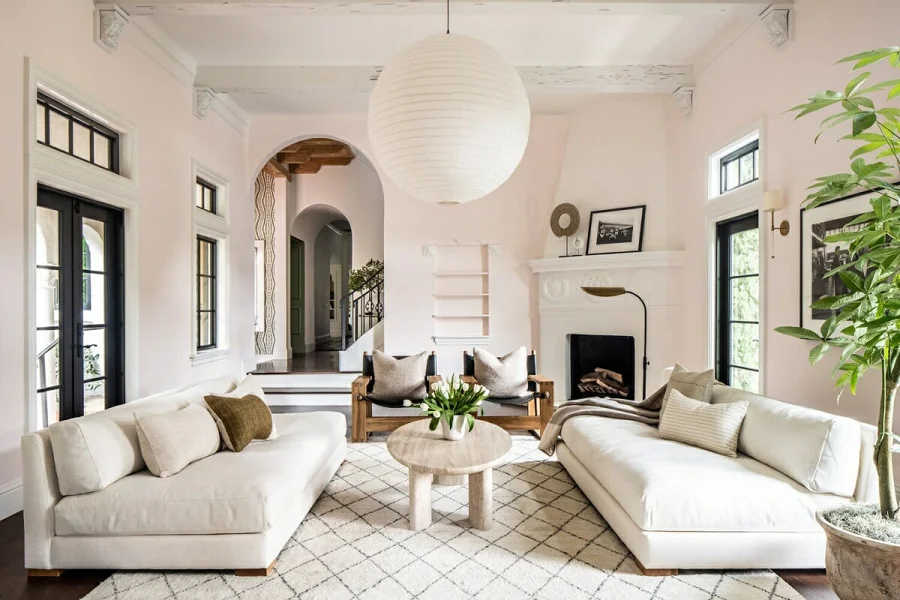Home décor is expensive. Just ask anyone who has had to renovate their entire home! Even simple jobs, like repainting, can cost thousands of dollars.
Therefore, there’s a large group of people looking for the best ways to cut costs on decoration, and you’re probably one of them. What’s needed is a simple list of helpful tips you can use to reduce your expenses and get the results you want at a lower price.
That’s where this post can help. We run through the best ways to cut costs on home décor so you can create your dream home without emptying your bank account.
Here’s what to do:
Research Everything
Before you begin decorating your home, take some time to research everything you want to do. Whenever you have an idea, ask yourself whether there’s a better or cheaper way.
Start by browsing online resources like Houzz and Pinterest to see what others have come up with. There’s no point reinventing the wheel if someone’s already gone out there and done what you want to do on a budget.
Then look into costs and techniques. Compare prices at different stores and shop around. Be inventive by going on Gumtree or eBay, and attending local yard sales. Look into how you’ll tackle projects once you have the materials and think about any skills you should acquire first.
Many people write reviews of projects, themes, paints, and fittings online. These can help you explore what works (and what won’t) when saving money.
Use Lighting
There’s an old proverb where a father tells his sons to go out and find something that will fill a room. One gets grain, another chooses feathers, but their efforts fall short. Even with many tonnes of material, they still can’t fill all the space.
Then the third son goes out and returns with a candle and lights it. When the father asks what’s going on, he says he’s filled the room with light.
The same principle applies to rooms. Expensive furnishings are great, but you can often get light to do most of the legwork by itself.
Use a mix of lighting options from table lights to recessed spotlights behind cabinets. These varying sources will give your rooms more of an ambiance and feel less harsh.
Use Inexpensive Materials Creatively
Another approach is to use inexpensive materials creatively. Instead of going to the hardware store and buying the most luxurious fittings, you select items from what you already own.
Cheap materials include:
- Rough-sawn softwood
- OSB (oriented strand board)
- Paint
- Various forms of plywood
- Planter boxes
- Tin cans
- Fabric scraps
- Glass jars
- Seashells
- Dried flowers
- Twigs
- Pine cones
- Plastic bottles
Rough-sawn software is ideal for things like open shelving and bedroom headboards. You can use OSB for wall paneling, while plywood is suitable for toy boxes and wall dividers. Seashells can be turned into stunning wall art, while glass jars can substitute for expensive porcelain vases if arranged properly.
Buy Used Items
Buying used items is also an option for many fittings, furnishings, and materials. For example, you could buy second-hand hardback books for your bookshelf or fireplace a neighbor doesn’t want anymore.
Buying used items is good all-round. Yes, it is less expensive, but it is also more sustainable. Furthermore, older items are often of a higher quality than newer products. Some vintage items offer a robustness you just don’t see anymore.
Used items don’t necessarily have to look old: many are indistinguishable from what you find in the showroom. However, distressed cabinets, dressers, and wardrobes can look great in shabby chic apartment interiors.
Think DIY
You will get the best results when hiring professional decorators to transform your interiors. But, you will also pay for it. It’s not cheap.
Therefore, you can also save enormous sums of money by going down the DIY route. Doing the work yourself eliminates the cost of hiring other people’s labor.
There are all sorts of DIY home décor projects you could do yourself at home, including:
- Updating your lighting fittings (but not the circuitry: that requires a professional electrician)
- Adding DIY wall art
- Revamping your existing furniture by waxing, treating, or reupholstering it
- Creating new throw pillows using fabric ordered online
- Decorating with mirrors
- Painting the walls yourself
- Creating built-in shelving units
- Building a coffee table from an old barrel
- Laying vinyl plank flooring
- Refreshing kitchen cabinet doors and fittings
Choose DIY projects that match your skill level. Don’t attempt to lay a floor unless you’ve already worked on similar projects in the past. Going beyond your expertise level can cause damage and force you to spend more than you thought.
Add More Plants
If the cost of conventional interior materials is still too high, adding plants could be another tactic you try. These look stunning when done properly and add a sense of freshness and vibrancy to your rooms.
Choose plants that can survive indoors with minimal light and water. Money plants, succulents, and cacti fill this niche.
You can also turn unused shelving on your walls into a vertical garden. Green surfaces improve your mood and even health if you get them right.
Choose Something Simple
Another approach is to choose a simple design. Eliminating the frills and squiggles can lower costs substantially and get you closer to what you want.
Square and rectangular shapes are the cheapest (mainly because most decorating materials come in these shapes). While they might not be particularly interesting, you should find following these patterns simpler to maintain.
Try to avoid long sweeping curves and fiddly sections in your room. These are annoying to deal with and take up more time.
Set A Budget
Lastly, it’s worth setting a budget to cut down on décor costs. Limiting your spending prevents you from going overboard and forces you to economize.
Wrapping Up
So there you have it: some of the best ways to cut down on home décor costs. While redecorating might seem a little expensive at first, you’ll soon discover you can reduce spending significantly with the right techniques.


